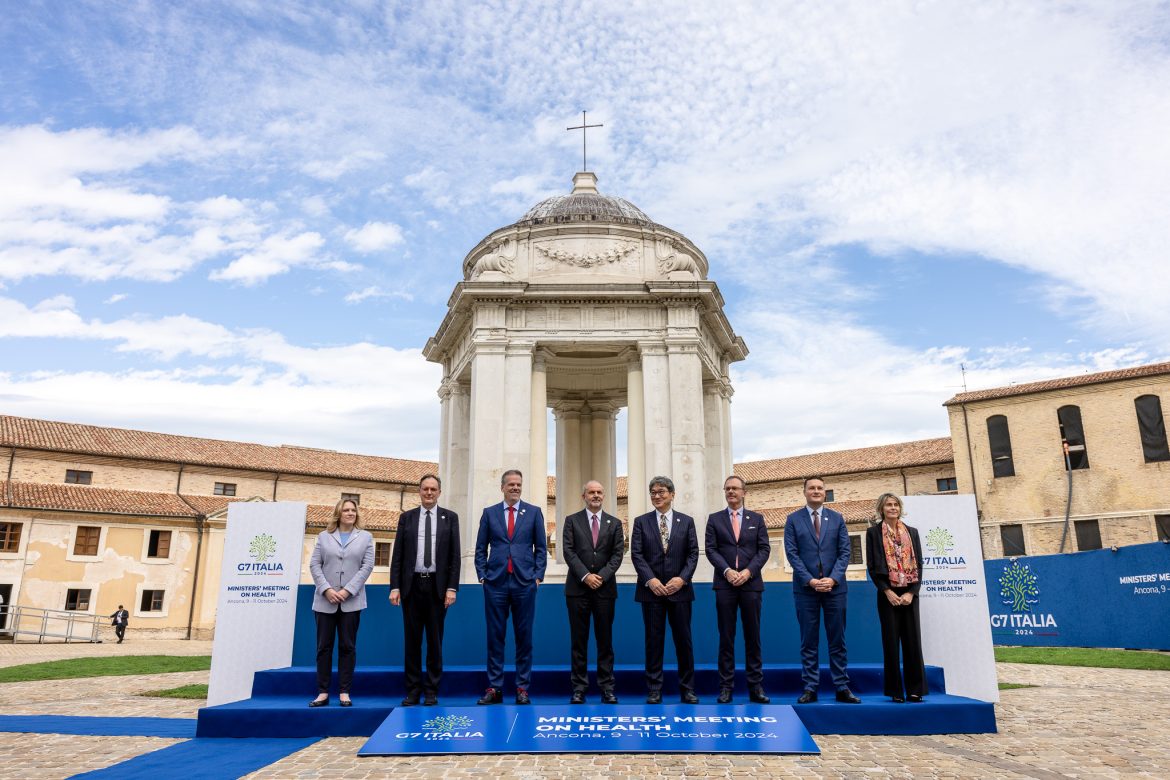By Haruna Gimba Yaya
The G7 Health Ministers has supported the African Union’s goal of producing 60 per cent of Africa’s vaccines locally by the year 2040.
In a communique issued at the end of the meeting held in Ancona, Italy from October 9 to 11, the health ministers said G7 will totally support the AU’s goal of producing its vaccines locally.
The Joint Declaration which touched several global issues, was described Italy’s Health Minister, Orazio Schillaci as “ambitious and which includes and summarises the common stances on all the issues addressed during these months.”
The G7 Health Ministers stated that, “Cognisant of the African Union’s goal of producing 60 per cent of Africa’s vaccines locally by 2040, we support regional diversification of development and manufacturing of MCMs, including regional vaccines manufacturing initiatives, as well as last mile delivery including addressing regulatory barriers.
“We welcome the mapping exercise of G7 actions towards enhancing pharmaceutical capacity in the Report “Enhancing pharmaceutical manufacturing capacity in Africa: current scenario and future perspectives for G7 Members”, produced by the Italian Presidency and look forward to further enhancing G7 cooperation to maximise the impact of supported initiatives,” the communique stated.
It added that the G7 Health Ministers will continue supporting the efforts to enhance pharmaceutical manufacturing capacity in Africa to advance Universal Health Coverage (UHC), strengthen global pandemic PPR and foster economic growth and innovation.
“We have already committed more than $2.7 billion in support of the development of a sustainable regional industry, and we emphasise the importance of the continuous engagement of African partners and domestic resource mobilisation to sustain this agenda. We welcome the establishment of the African Vaccine Manufacturing Accelerator (AVMA) building on the support for pandemic preparedness and equitable vaccine access.”
They also called for continued support to the Pandemic Fund, including expanding the donor base, with support from new sovereign donors, philanthropies and the private sector.
“We call for at least $2 billion in new pledges, in the next two years, and at least an equivalent amount in co-financing in order to support the implementation of the Pandemic Fund medium term Strategic Plan 2024 – 2029.
“We welcome the launch of Gavi, the Vaccine Alliance’s replenishment process, and we continue to support Gavi’s efforts to vaccinate 500 million more children by 2030 and to save over 8 million lives. We also emphasise the importance of country-led initiatives that align with local health priorities and reinforce the principle of country ownership.”
The health ministers also reaffirmed commitment to accelerate progress towards the achievement of health-related Sustainable Development Goals (SDGs), in particular SDG 3, ensuring healthy lives and promoting wellbeing for all at all ages.
“We will continue to advance universal health coverage (UHC), including through life-long prevention policies and through developing and adopting health innovations and new technologies to address the health impacts of demographic changes, and the health needs of an ageing population.”
“We reaffirm our collective commitment to respect the right of all persons to the enjoyment of the highest attainable standards of physical and mental health. We have the collective responsibility to strengthen global health architecture (GHA), drawing on the lessons of past global health emergencies, by promoting health as a value for our societies, investing in prevention, preparedness and response (PPR) to health emergencies, promoting regional manufacturing of health products and promoting equitable access to quality health services as well as safe, effective, quality- assured and affordable medical countermeasures (MCMs).”
“To that end, we recommit to working alongside global partners to assist countries to achieve UHC by supporting primary health care (PHC) and restoring essential health services, to achieve better than pre-pandemic levels, as part of our effort to strengthen health systems in ordinary times.”
They also stressed the need to address the economic, social and environmental determinants of diseases, that continue to impact wide sections of the population, particularly for groups experiencing the most vulnerability and disadvantage.
“We further commit to promote comprehensive sexual and reproductive health and rights (SRHR) for all and to advance maternal, new-born, child and adolescent health, especially for those in vulnerable circumstances as a critical part of UHC and PHC.
“Our actions are aimed at strengthening the capacity to address the global health threat of antimicrobial resistance, zoonotic diseases spread and the triple planetary crisis of climate change, pollution and biodiversity loss, including through effective implementation of the One Health approach.
“To deliver on these commitments, we will therefore work together for a healthier future across three areas: strengthening GHA and pandemic prevention, preparedness and response, healthy and active ageing through life-long prevention and innovation and the implementation of the One Health approach with a focus on AMR and climate change,” the communique added.




